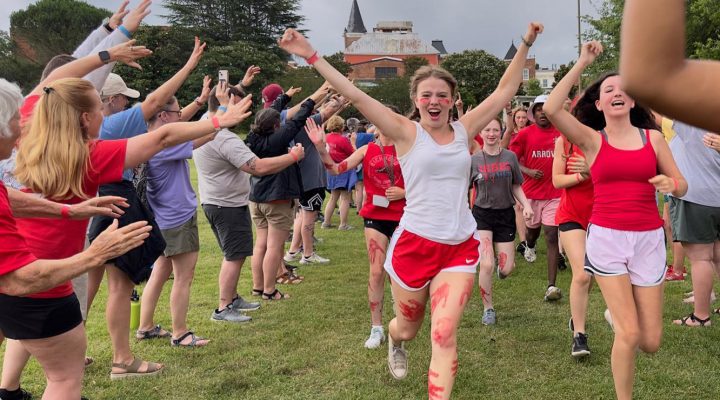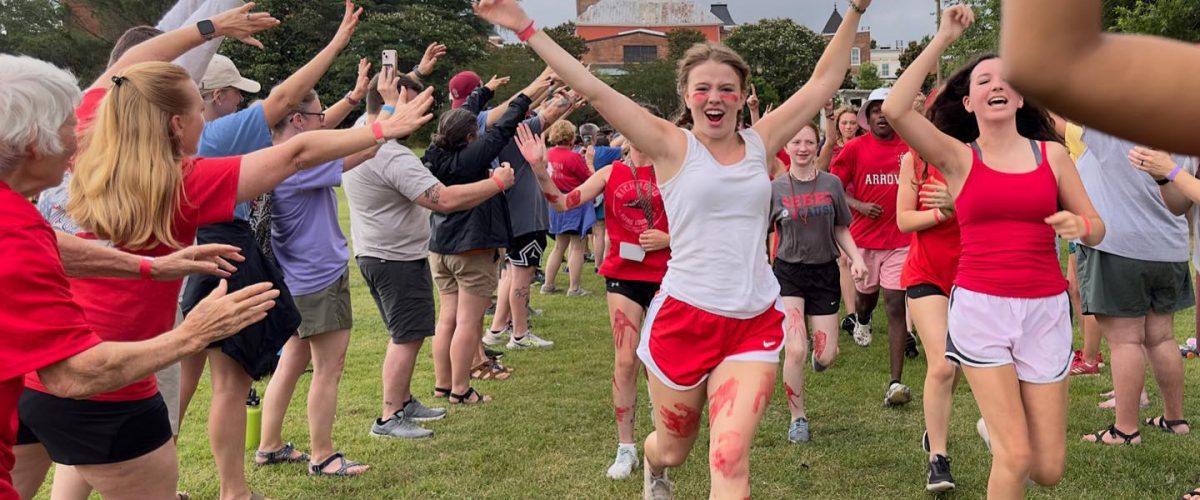Is the end of COVID as an official public health emergency good news for summer youth camps? Or are dangers still lurking behind every tree and campsite?
After the May 11 declaration that COVID-19 is no longer a public health emergency, the Alliance for Camp Health and the American Camp Association published a joint statement acknowledging this ended “certain federal policies and data collection” surrounding COVID-19 but said the virus is still a “public health priority” that should be taken seriously by camping institutions.
The joint statement offered three guidelines: (1) Camps should create a communicable disease plan to follow for the summer, (2) campers should remember the CDC has not changed recommendations on isolation or post-exposure testing, and (3) campers should be aware there are other respiratory illnesses easily spread in camp environments.
But what does any of that mean after three years of abnormal camping experiences?
To answer that question, a camp director and a youth pastor look back on where they’ve been and where they see things this year.
Summer 2020
By the time COVID-19 hit in early 2020, Passport Camps summer staff already had been hired. David Burroughs, president of the Christian camping group, said his first thought was, “We have to cancel.” Initially, like many others at the beginning of the pandemic, he believed, “We’re going to shut down for a month, and then it’ll all be fine.”
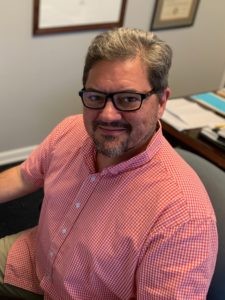
David Burroughs
But as the reality of COVID-19 continued to grow throughout that summer and the next years, Passport Camps had to continually adapt.
During 2020, camps were hosted online. One of the hardest parts of this summer was having to lay off some of the staff he’d hired just months prior. Although the situation was out of Passport’s control, it was hard to let go of so many talented, excited employees, he said.
The transition from in-person to virtual camp also was difficult, since the interactive components of an in-person, overnight summer camp needed to transition into completely online programming.
“It was really hard,” Burroughs said, noting his entire staff had to learn how to use a new array of technology very fast. But although the virtual platforms posed some hardships for Passport, they still allowed students to enjoy the summer.
And while much of Passport’s programming was pre-recorded, not live sessions, students still had opportunities to contribute to camp life. For example, each week ended with a “Variety Show,” an event the camp typically holds in-person for students to showcase their talents. During virtual programming, students could submit performances, and the full show was streamed for everyone to see.
So, although virtual summer camp was not an ideal situation for middle and high schoolers during the summer of 2020, campers had many opportunities to stay connected through Passport.
Throwing ministerial pasta on the wall
Dane Jackson, minister to youth and their families at Providence Baptist Church in Charlotte, N.C., believes Passport does amazing work in its Christian summer camps. Yet he still longed for a deeper, relational aspect of youth ministry during the pandemic.
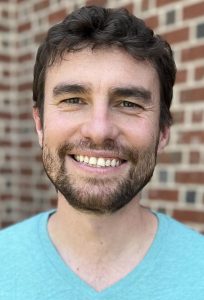
Dane Jackson
“In 2020, ministers — and I’ll say youth ministers within that group — were throwing what I call ‘ministerial pasta’ against the wall,” Jackson said. Utilizing their limited resources in an out-of-control world, ministers were “trying to see what would stick. It was a great time for creativity and experimentation.”
On virtual Passport Camps, Jackson said: “Like anything, it was an experiment. It saw its own successes and failures.” However, as time in isolation dragged on, he found it difficult to encourage students to consistently engage in an online format. He needed to do more. And being locally based, he found creative ways to do that.
“One of the most successful programs I had was what I called ‘driveway hangouts,’” Jackson said. He and sometimes other adults on the ministerial staff, would pick up food or drinks, usually milkshakes or coffee, and bring tailgate chairs to sit and chat with students in their driveways. This allowed Jackson to “keep ministry relational” for students and families while social distancing, maintaining health, safety and spiritual connection during the pandemic.
2021 — Back to normal?
The next summer, in 2021, Passport Camps began holding in-person sessions, following strict health and safety guidelines to ensure students did not contract COVID-19 at camp. And according to Burroughs, it worked. He said there were zero cases of COVID-19 contracted by students, chaperones or staff at Passport Camps during the entire summer.
Although they had much success in their initial return to in-person programming, they did have some COVID-19 outbreaks at camp the next year, in 2022, after they relaxed protocols.
“Oh, no. We’re putting masks back on,” Burroughs said at the time, wanting to ensure camp always was a safe space for every camper, chaperone or staffer. And after the masks were back on, COVID cases went back down.
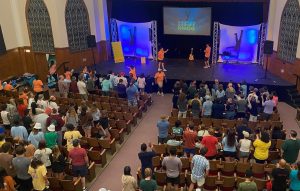 How did they achieve this?
How did they achieve this?
Passport did a few things to ensure student health and safety at camp, including following the ACA guidelines for COVID-19. This meant every person attending camp had to wear a mask and was required either to be vaccinated or test negative for COVID-19 prior to coming to camp. Camp participants also were encouraged to self-isolate prior to camp, to decrease the likelihood of arriving at camp sick.
Another change Passport made was the division of students into “houses,” placing students in living and learning groups determined by their church and state. Students did activities with their “house” and never shared a dorm with students of another house. This meant students primarily interacted only with other students from the same states as them, or from states with similar COVID-19 precautions.
Why? “Put like with like,” Burroughs explained, as students would be with people who already were following similar guidelines back home. This also made it easier to identify outbreaks if they occurred and quarantine the necessary students, chaperones and staff.
Otherwise, and especially when camp activities required all campers to be together, such as during celebrations and worship, events were held outside, and technology (such as microphones) was never shared.
Even amid the strict guidelines and precautions of 2021, holding camp in-person again boosted the mental health of students and staff, Burroughs said. “There’s hope. We’re going to get back to normal.”
Even amid the strict guidelines and precautions of 2021, holding camp in-person again boosted the mental health of students and staff.
In contrast, although Jackson had been having some in-person contact with individual groups of students and their parents, he believed Providence’s student ministry was not yet ready for the transition back to in-person camp. However, he knew students were longing to connect with each other in a more personal way, so once again he got creative.
“We created our own in-house version of camp,” he explained. “It did not have a fancy name — I think we called it ‘Summer Camp at Night’ — and for five days, we met outside in our outdoor gazebo.”
This brought students back to the church campus for a softer reintroduction to in-person programming that catered to the specific needs of his congregation and community.
“We were able to have music and a lesson up there. We were able to do mission work, like cleaning up local neighborhood streets with trash, or planting flowers and delivering them to local retirement communities,” he said. This set-up allowed students to social distance, some wearing masks if they felt the need, while also engaging with each other in a meaningful way.
And students seemed to love it, he reported. “People keep wanting to do it. I get asked now, in a post-COVID world, ‘Oh, can we do Night Camp again?’”
This reintroduction to community is something his students were craving amid the months of isolation, he said. “So much of what youth ministry is, is community driven. One of the losses and longings (of a pandemic) is community.”
“The biggest loss was not being able to be together.”
Jackson also told BNG that, while doing youth ministry during the pandemic, he learned a lot about incorrect assumptions adults have about young people today: “We tend to say this generation of young people is glued to their phones. And while we’ve seen an increase in that, just with the proliferation of technology, social media, et cetera, they still have this base, core desire to be together. To laugh, to interact and to do things corporately. The biggest loss was not being able to be together.”
2023 — A post-pandemic world
Flashing forward to today, in a world where COVID-19 is no longer a “public health emergency,” are there lasting changes in youth summer camp programs? Are they positive changes? According to Burroughs and Jackson, the answer is yes, and yes.
Rates of attendance for in-person summer camps dramatically decreased during the pandemic, with a low of zero campers at the peak isolation stage. Since then, numbers have slowly been creeping back up, and although they are less than what they used to be, camp is starting to look and feel a bit more normal.

Passport youth campers from Providence Baptist Church.
There are a few changes Passport Camps has made to its protocols and program model that likely will remain or be adapted for years to come.
“We have disease protocols in place,” Burroughs said. “They’re COVID-19 protocols, but they work for the flu and other illnesses. Those are good.”
These protocols help Passport know how to properly quarantine staff members, identify outbreaks of illness and plan activities that promote health and safety in more proactive ways.
For example, the division of students into “houses” remains. Although Passport is not strictly dividing students by state this year, this method of organizing students was helpful for the overall flow of camp throughout the week.
Students also said they enjoyed this system, he noted. “The youth really liked the houses, because they feel more comfortable. There is less social pressure since there’s only three churches they need to get to know well, not the whole camp.”
Jackson also recognizes the benefit of some changes brought about by the pandemic, mentioning the houses as a positive aspect of his students’ Passport camp experience this year.
Additionally, he cites other meaningful changes Passport has made, unrelated to COVID-19. “I’ve seen changes that I have been grateful for, and these are changes that have been made in terms of inclusivity. Embracing diversity, inclusion and equity; It’s been great to see those changes made.”
Along with discussing institutional changes, Burroughs reflected on the old “camp spirit” that has motivated people to go on outdoor retreats for many, many years.
“I believe in camp ministry, and the potential for those rare, sacred moments.”
“I believe in camp ministry, and the potential for those rare, sacred moments,” he said. “God is always speaking, but there is so much noise in our lives, it’s hard to hear. Camp is where (students) are out of their routine, and we’ve invited them to put their phones down, and they’re with new people and experiencing new things. They’re paying attention a little deeper to the world. It’s a really good opportunity for the Holy Spirit to tap them on the shoulder and say, ‘You should think about this.’”
Serving a new generation: Camp as a dichotomy of grace and truth
Jackson also compares his own childhood experiences with camp to modern camps, post-COVID, and the difference consistent church attendance makes in the experience of youth today.
“When I was growing up … you’re getting this firehose experience,” he said of the week-long spiritual engagement at faith-based summer camp. Those single weeks of intense exposure could be overwhelming or produce deep feelings of spiritual reflection.
Back home, students attended church activities once or twice a week. But in this post-COVID world, most students might attend church once or twice a month, widening their gap in spiritual formation.
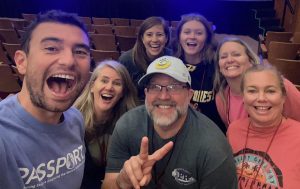
Dane Jackson (left) with other Passport campers from Providence Baptist Church.
“You’ve got all these students that, maybe they’ve grown up in church, but their experience with church is much rarer,” he said. “To have five, six or seven days (straight) where they’re in this culture, it’s going to change the way they experience life for a week.”
“Camp, especially a camp like Passport, is a place where students can go and experience this dichotomy of grace and truth,” he said. “And when I say the truth, I mean the gospel in its entirety. What it means to be missional, what it means to be justice oriented. What it means to be caring.”
He added: “I couldn’t imagine what I would do without Passport. Where would I feel I could take my kids, and be in a place where I know the theology is in line with what I believe, and what our church believes, and that they’re going to get all of these things I’ve been talking about?”

